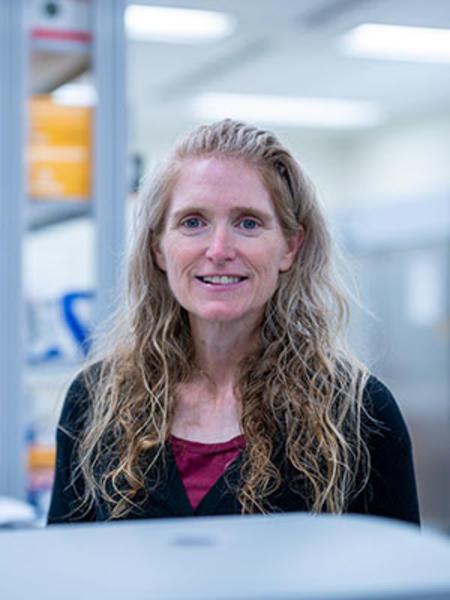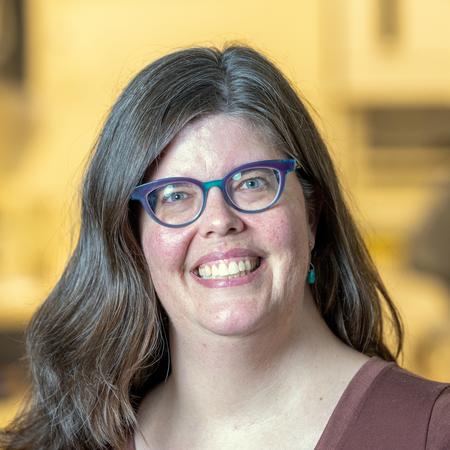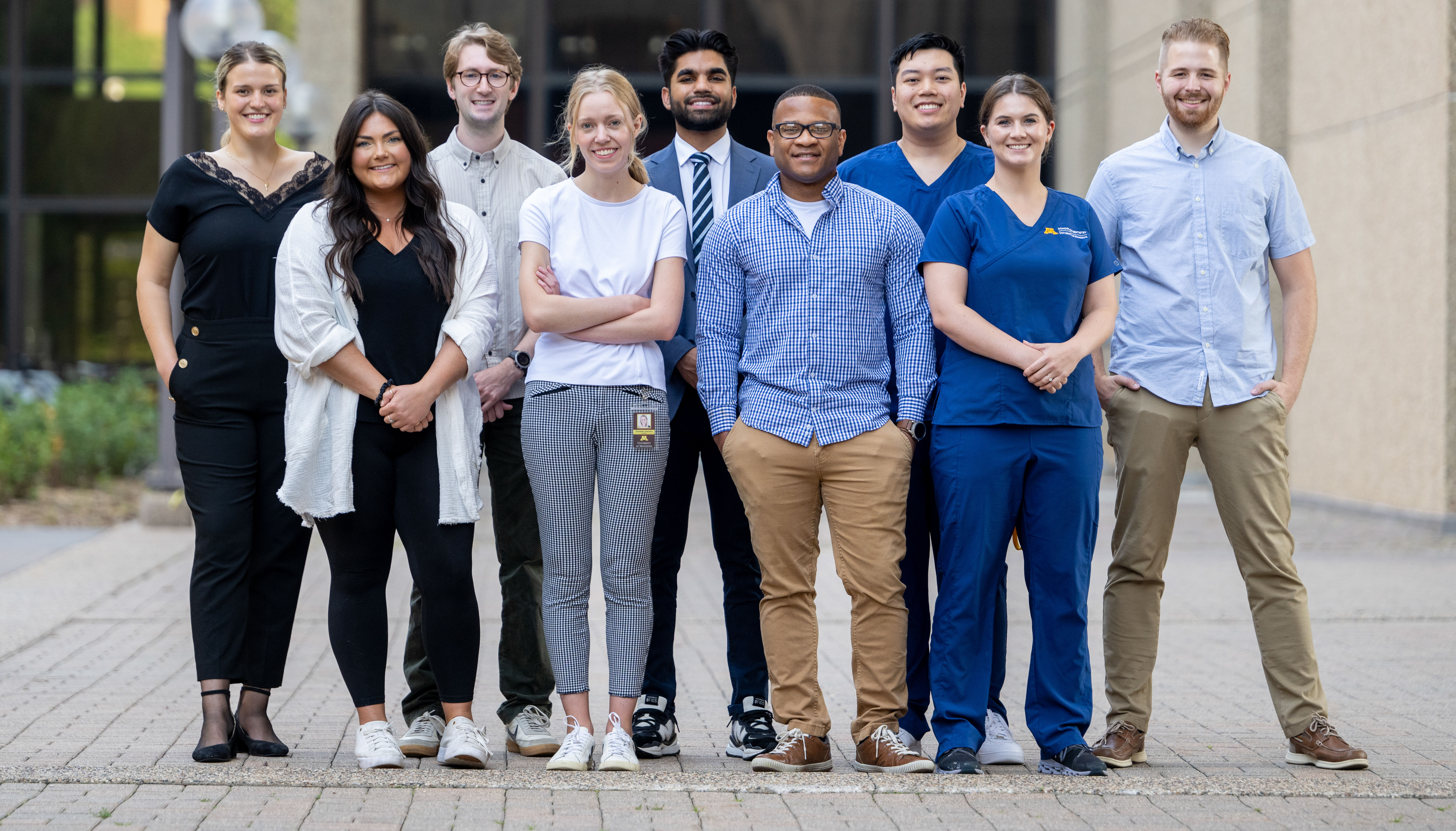The Summer Research Program provides an excellent opportunity for students to contribute to the progress of dental and craniofacial research. Over a 7-10 week period in the summer, fellows conduct research under the guidance of a faculty mentor from the School of Dentistry. Occasionally, faculty from other health science schools also participate at mentors.
At the conclusion of the Summer Research Program, fellows present their research in both a written scientific report and a poster at the annual School of Dentistry Research Day. In some cases, fellows present their research at regional research meetings and/or national meetings, including the American Association for Dental, Oral and Craniofacial Research Annual Meeting & Exhibition.
Summer research project areas encompass several areas of research including microbiology, immunology, virology, neuroscience, pain, bone biology, cancer, public health, and oral epidemiology, among many other topics.
Frequently Asked Questions
Who is eligible?
Students who are matriculating or currently enrolled in the University of Minnesota School of Dentistry are eligible for this program. Matriculating students can apply for the program at the time of their invitation to interview. Students who are offered these “pre-D1” research fellowships carry out their research during the summer, before starting their first year of dental school at the University.
Fellowships (depending on funding) are available for second-year dental students to conduct research in the summer after rising to second-year. An application form will be distributed to the rising second-year class in the spring semester. New applicants are encouraged, but second-year students who were awarded fellowships the previous summer also can apply for a second summer fellowship.
Who should apply?
This program is directed toward students who are interested in participating in dental research, previous research experience is helpful but is not required. Those who are considering applying to a dental specialty program (such as orthodontics, endodontics, periodontology, oral surgery, or pediatric dentistry) may find it helpful to acquire some research experience.
What is the time commitment?
Pre-first-year students are expected to do full-time research for 10 weeks during the summer, prior to the start of the fall semester, with the earliest possible start date in May. Start and end dates and vacation time can be negotiated with mentors, to allow for events such as family vacations. However, work must be completed by the beginning of first-year orientation, usually in mid-August.
Current dental students entering their second year will conduct their research during the summer break in July and August; the specific schedule is set by March of each year. Current students who want to continue existing research in their third or fourth years may work year-round without a stipend, as their schedules permit.
Is there a stipend?
Pre-first year students admitted to the Summer Research Program will receive a stipend of $6,000 for the 10-week program. (Note: the stipend may be considered taxable income).
Current students (D2s) who are accepted to the Summer Research Program will also receive a prorated stipend based on $6000 for 10-weeks/$600 per week. Beginning in 2023, stipends will be paid bi-weekly throughout the summer term. Stipends may not have taxes withheld by the University, but this does not mean they are not taxable. Consult your tax advisor to determine your situation.
Can I volunteer to do research without a stipend?
We will consider applications from current students who are willing to participate in the program without a stipend. Volunteers must meet the eligibility criteria and must go through the same evaluation process. In order to maintain the integrity of the program, volunteers will be expected to meet the same obligations as all other summer fellows. The number of volunteers accepted will depend on the number of mentors available.
Where does the money come from?
Funding for Summer Research Program fellowships comes from a variety of sources in the School of Dentistry, including scholarship funds, the dean’s office and mentor research funds. The number of fellowships awarded is contingent upon funding from year to year.
What are the obligations?
Participants are expected to conduct research full time (40 hours per week) for the designated time period for the program (10 weeks for pre-D1 students, 6-8 weeks for D2 students). Summer fellows must also:
- Participate in weekly seminars
- Complete annual training on research safety and research ethics.
- Write a research paper (10 pages) due at the beginning of spring term
- Present a research poster about their research during the annual School of Dentistry Research Day, usually held in March.
Are there any perks?
The Summer Research Program provides opportunities for students to conduct research while in dental schools. The Summer Research Program also provides opportunities for some students to travel to present their research at the American Association for Dental, Oral and Craniofacial Research Annual Meeting & Exhibition. Fellows can submit abstracts at the end of summer to the program director for consideration for presentation at AADOCR Annual Meeting & Exhibition.
How are applications reviewed?
Due to the limited number of fellowships available, the application process is highly competitive. Pre-D1 applicants who are invited for an interview are offered the opportunity to submit an application form for a Summer Research Program, due no later than the date of their interview. Members of the DDS Admissions Committee review the application forms and offer summer research scholarships to selected students when the first round of acceptance letters go out in December. Current students apply in spring semester and a committee of School of Dentistry researchers screen the applications.
In both cases, the selection of fellows is the result of a holistic process. Criteria considered include previous research experience, expressed interest and enthusiasm in research, and the student’s level of academic achievement. Decisions are based on all of those factors combined.
How are mentors selected?
In the spring semester, prospective mentors are asked about potential student research projects. The project areas encompass several research areas including microbiology, immunology, virology, neuroscience, pain, bone biology, cancer, public health, and oral epidemiology, among many other topics. The summer research program then matches selected fellows with mentors, based on common interests and experiences. Note that mentors and topics change from year to year, so it may not always be possible to give a student their first choice for a research area. Mentors and students are introduced about a month before the beginning of the Summer Research Program.
Are University of Minnesota pre-dental students eligible for the program?
The first priority of the Summer Research Fellowship program is to find mentors for our accepted and current dental students who are interested in doing research. Undergraduates may apply for the cross-collegiate Undergraduate Research Opportunities Program (UROP); contact UROP directly for more information.
Other possibilities include the Life Sciences Summer Undergraduate Research Program (LSSURP) and the Minnesota Craniofacial and Oral Health Research Experience (MnCORE).
How can pre-dental students put themselves on the path to a summer fellowship?
Previous research experience (plus a strong letter from your research mentor in your AADSAS application) is encouraged for applicants to the program. However, there is no advantage to having research experience with a School of Dentistry faculty member. Similar considerations apply to the admissions process for the DDS program. The admissions committee is interested in applicants who have conducted high-quality research, in any field of science.
Are there other research opportunities for dental students?
A variety of research fellowships are available at the local, national and international levels, including:
- The Clinical and Translational Science Institute offers the Advanced Pathways to Research Program (A-PReP) for students from the academic health sciences.
- The American Association for Dental, Oral and Craniofacial Research offers AADOCR Student Research Fellowships to students from US dental schools.
- The NIDCR Summer Dental Student Award provides selected dental students with the opportunity to work during the summer at the intramural laboratories of the National Institute for Dental and Craniofacial Research. Our goal is to send one or two students every summer. Please notify Julie Olson, Summer Research Fellowship program director, if you decide to apply.
- D3 or D4 students with a serious interest in an academic career can apply for a one-year research fellowship at NIH through the Medical Research Scholars Program. One of our students was part of the 2012-13 inaugural class for this program. If you are interested, contact Julie Olson for more information.
- DDS/PhD option
Contact the Summer Research Fellowship Program

Program Director
Julie Olson, PhD
17-164B Moos Tower
515 Delaware St. SE
Minneapolis, MN 55455
612-626-6304
[email protected]

Assistant Director
Ann Hagen
17-160 Moos Tower
515 Delaware St SE
Minneapolis, MN 55455
612-626-4483
[email protected]
